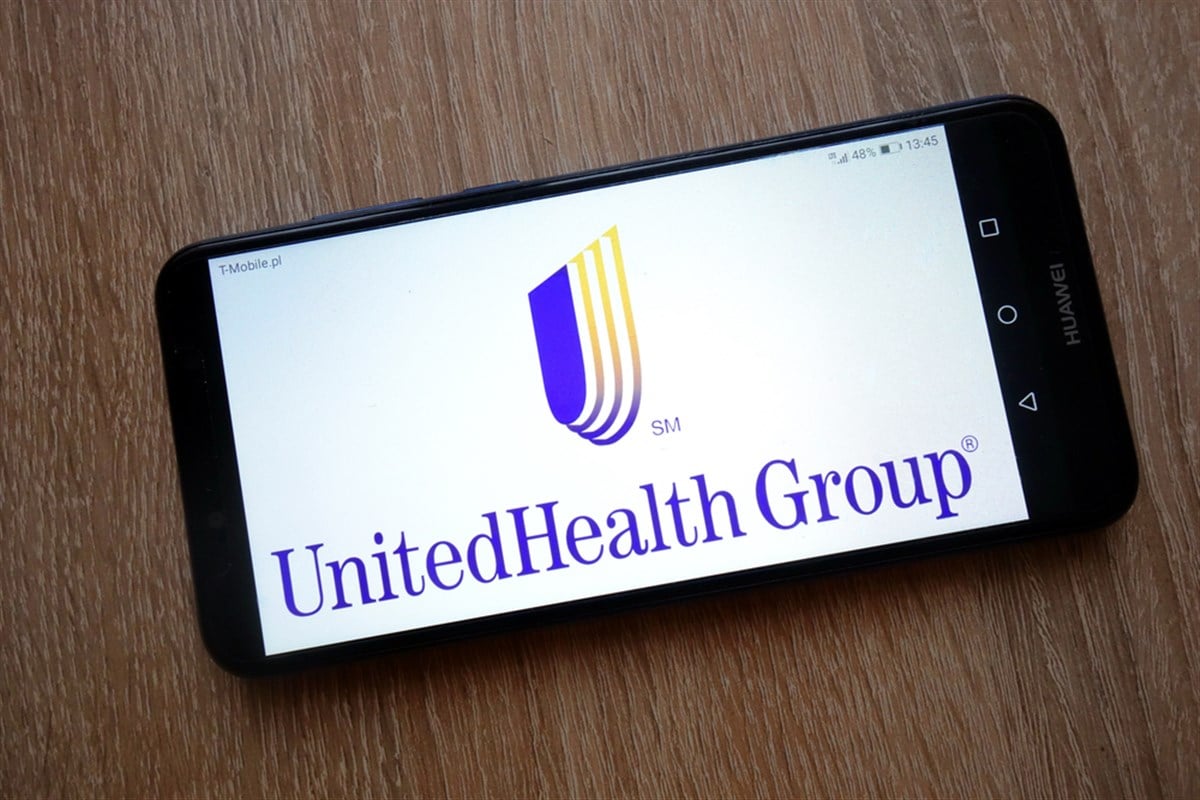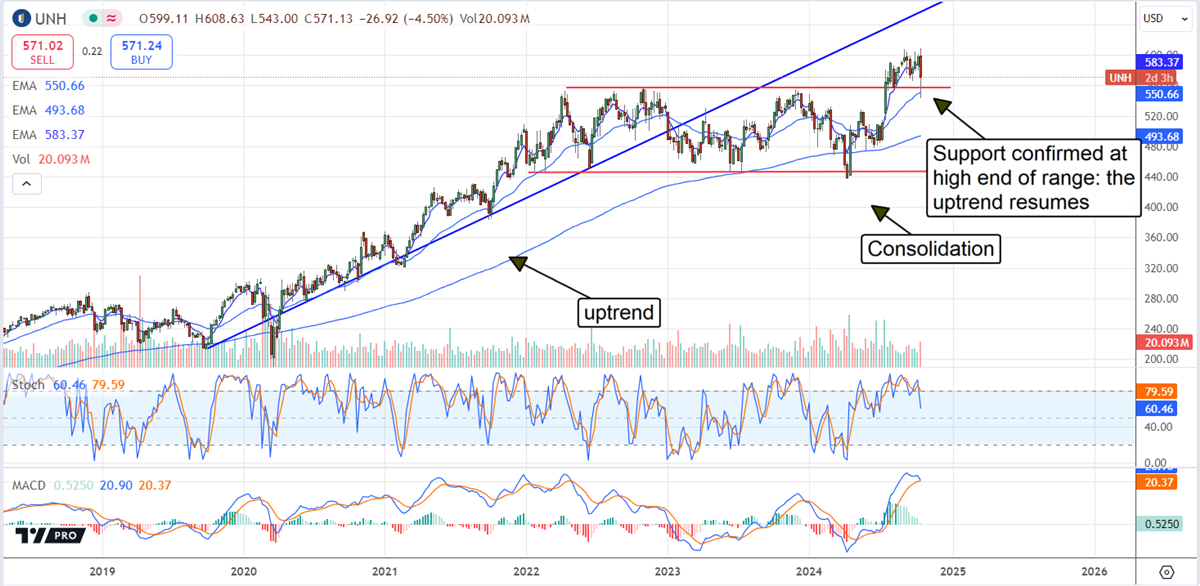
UnitedHealth Group's (NYSE: UNH) stock price pulled back following the Q3 earnings release in what can best be described as a temper tantrum. The results weren’t bad, outpacing the consensus estimates and compounded by solid guidance, but the market wanted more, so it sold off.
The takeaway is that this healthy, dividend-paying growth machine is executing despite the headwinds and delivering value for investors; the post-release dip is a buying opportunity. Value building is expected to continue in Q4 and next year, suggesting new highs will be set soon - and a 100% increase is possible for long-term holders. Because the analysts are leading the market for this healthcare stock, a new all-time high may be reached before the end of the year.
UnitedHealth Group Falls After Solid Report; The Rebound Has Already Started
UnitedHealth Group had a solid quarter, with revenue of $100.8 billion, rising more than 9% compared to the previous year. The revenue outpaced the consensus reported by MarketBeat.com by nearly 200 basis points on strength in both segments, which was driven by an increasing client base. The core UnitedHealth segment grew by 7.1%, led by a 12.7% increase at Optum. Strength in the UnitedHealth segment is due to an 8.8% increase in the number of people served; strength at Optum is due to an increased patient count in both sub-segments, compounded by deepening penetration.
The guidance news is mixed and central to the market’s initial reaction. The company reported a higher-than-expected medical cost ratio of 85.2%, casting doubt on future profitability. However, operational quality offset the medical cost ratio increase, leaving the adjusted net margin flat compared to last year. The bottom line is that GAAP earnings are down due to one-offs, including the impact of the cyberattack in Q1. However, adjusted EPS grew by 9%, aligning with the top-line growth, sufficient to sustain the business health and capital return outlook.
Guidance is another sticky point for the market but ultimately favorable to the stock price. The company narrows its full-year EPS range by a nickel at the high end because of cyber attack costs and mitigation efforts. Still, the mid-point of guidance is above the consensus estimate, with top and bottom-line growth expected to persist through 2025.
The Analysts Lead UnitedHealth Group to New Highs
The analysts' response to UnitedHealth Group’s Q3 results is mixed, with some lowering, some reaffirming, and some raising their price targets for the stock. The salient point is that the sentiment remains firm at Moderate Buy, and conviction is firming that new highs will soon be set.
The consensus price target implies a 7% upside from $570, sufficient to set a new high, and the revisions suggest a move into the high-end range is likely. The high-end range adds another 100 to 600 basis points to the 7% upside target.
Regarding capital return, the $8.40 annualized distribution yields a little over 1.0%, with shares near $570. The payout is a safe 30% of earnings in 2024, and the balance sheet is a fortress, so annual distribution increases should continue. The company is not a Dividend Aristocrat but is tracking in the right direction with 15 years of sustained increases to its credit. Investors with a 10-year or longer time horizon for holding UNH stock may see it included in the Dividend Aristocrat Index, another tailwind for price action. The distribution is compounded by repurchases, sufficient to offset share-based compensation and reduce the count incrementally in Q3.
The Technical Outlook: UNH Stock Confirms Its Uptrend
UNH stock’s price plunge was not pretty, but it is still good news for investors. The plunge confirmed support at a critical level, making a sustained uptrend possible. The market for UNH broke out of a multi-year consolidation range over the summer. The post-earnings dip confirms support at the top of the range, indicating a continuation of the longer-term uptrend. In this scenario, the stock could rally higher for the next three years, gaining 50% to 100% in value at the peak.

